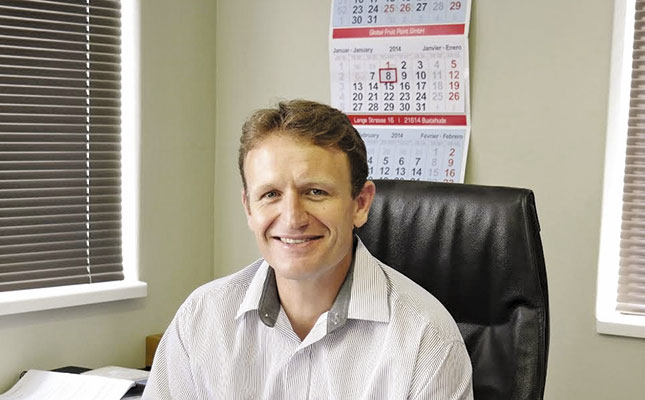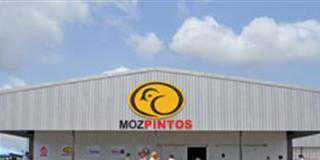
What were the main highlights and challenges of your first year as managing director of Tru-Cape?
It has been a massive adjustment and challenge to go from a retail environment at Pick n Pay, where I dealt with suppliers, to an agribusiness where I had to deal with retailers. But because of my background in finances and the retail sector, I came with a fresh approach to the fruit industry. In the retail business I was driven by operating plans, budgeting and strategising, and I’ve been able to bring that ability to strategise to the table and apply it in fruit marketing.
READ:Mega-ranches: how to build and run one
Over the past year, our emphasis has been not just on selling and marketing the fruit at the highest price, but on increasing efficiency and looking at streamlining every business process within Tru-Cape. One of the highlights has been the people within the company. The entire team, and the growers who are our shareholders, are an extraordinary group of people and I feel privileged to work with them.
In terms of marketing and market share, the progress we made in Africa and the Middle East has been a highlight.
I also believe that the distribution centre we’re building in Johannesburg will be a game changer for us when it opens next year.
Tru-Cape recently announced its ‘closer- to-market’ strategy. What does this entail and what benefits will it offer your customers and shareholders?
What we mean is that we want to get closer to our end-consumer while also getting the primary producer closer to the customer. We believe this offers a significant benefit for us, our customers and shareholders, not only financially but also by reducing the time to market. An important part of this strategy is setting up the distribution centre in Johannesburg.
This will enable us to move closer to the end-consumer, and we’ll stock it to supply clients directly from a base in Johannesburg. This will put us in a position to replenish the retailers that we serve in that region much more frequently and efficiently. We’re selling a product that has a limited lifespan and we want to get it to the market as fresh as possible.
I can see Africa becoming a much stronger market for Tru-Cape, and distribution will play a major role. The distribution centre in Johannesburg is just a start for us in building infrastructure on this continent.
Tru-Cape’s apple exports to Africa have increased almost tenfold over the past six years. What plans does Tru-Cape have in place to continue expanding into the African market?
Africa as a market will definitely continue growing and we need to know how we will protect and grow our share. Currently, we are a big player in West Africa in countries such as Nigeria and Senegal; about 25% of our total volume of exports to Africa goes to Nigeria. We’ve formed a strategic alliance with one of our key customers in West Africa through which we hope to further develop this market. We’re very excited about opportunities in other African countries, such as Angola, for example.
I believe we’re under-represented in East Africa but we’re looking at growth opportunities in this region, particularly in countries such as Kenya, Tanzania and Uganda. We also see an opportunity to gain market share in SADC countries such as Mozambique and Zambia.
Apart from Africa, what other export markets will Tru-Cape be focusing on over the next five years?
The Middle East is an exciting market, but it’s not as big as people think. Some of those markets consist of only 200 000 or so people each. Also, distribution in the region is a challenge, which is the reason the selection of a partner in the Middle East is important. It’s rare to have a direct client there; a supplier needs someone who spends time in, and understands, the market.
We recently bought a 50% share of GF Marketing, a company that mainly focuses on citrus, apple and pear marketing and distribution in the Middle East. Its has access to smaller markets such as Kuwait, Saudi Arabia and Azerbaijan where we currently have no footprint. Buying into GF Marketing gives us access to those markets. Tru-Cape’s next big challenge is to maximise our footprint in the Far East and it’s important to find the right strategic partners who can help us do so. We’ve already allocated more resources to strengthen our in-house team focusing on the Far East.
We have some presence in the Far East, but are only scratching the surface at this stage. The market is too big for any one supplier, but we expect to increase production from 13 million to 18 million 12,5kg cartons within the next five years. After 2020 there’ll be even more growth and we have to find a market for this fruit. For the Far East, China specifically, quality has to be perfect and a supplier has to understand what the customer wants. But even with these high specifications, getting the quality and sizing of our fruit right will give us a huge opportunity in that market.
Approximately 28% (or 1 700ha) of the total plantings of Tru-Cape growers will come into production within the next three years. All these new plantings are new strains of Fuji and Royal Gala, which we believe are the varieties of the future and will produce fruit with the right specifications to serve markets in the Far East, for example. The UK will remain an important market for us. About 13% of our total export volume goes there and the retailers that we serve have proven to be reliable customers. The European market will remain very important for pears.
This article was originally published in the 21 November 2014 issue of Farmer’s Weekly.













